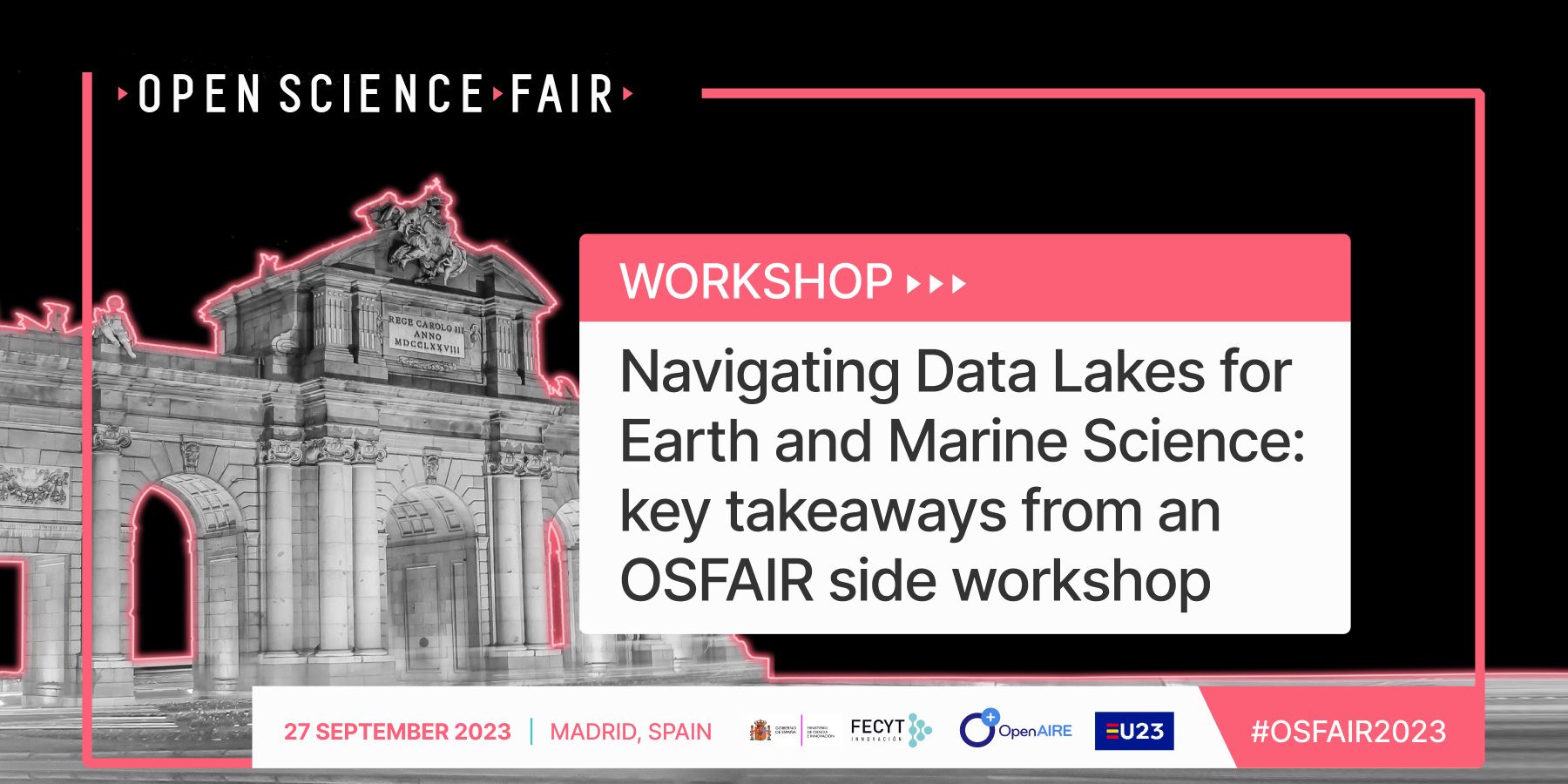
The workshop, "Navigating Data Lakes for Earth and Marine Science", held on 27 September 2023, was organised as a side event of the Open Science FAIR Conference. With the goal of promoting the adoption of FAIR (Findable, Accessible, Interoperable, and Reusable) data practices in the fields of marine science and related disciplines, the workshop, co-organised by the EU-funded initiatives, Blue-Cloud and FAIR-EASE, gathered key actors in the open science field.
Open Science: benefits and challenges
Open Science has been making substantial progress, involving researchers, institutions, funding agencies, and infrastructure providers. However, this progress has introduced various models and systems, resulting in a seemingly fragmented ecosystem.
In order to enable international and interdisciplinary research it is essential to maintain interoperability across communities and services while supporting diverse workflows and knowledge systems.
Blue-Cloud and FAIR-EASE aim to overcome this challenge by building data platforms in the marine and Earth sciences that federate data infrastructures that follow FAIR principles.
Key Takeaways from the Workshop
The workshop's central theme revolved around data lakes and their application in Earth and Marine Sciences. It emphasised the importance of FAIR data management and service interoperability. Specifically, it highlighted the development and uptake of FAIR service descriptions, which expand FAIR software and include methods for assessment.
Data lakes, whether federated or distributed, offer a solution to manage and provide access to vast amounts of data. However, they present technical bottlenecks and sustainability constraints:
- Achieving technical and semantic interoperability between services is crucial to providing added value to users beyond merely providing APIs.
- Every data access service, whether a standard dataset access service or an advanced subsetting service, requires a comprehensive FAIR service description. This description should encompass expected input, output, processing capacity, data policy, and more.
The workshop shed light on the challenges faced by:
- Blue-Cloud 2026: actively involved in the marine domain, the project is developing Virtual Labs and workbenches for Essential Ocean Variables (EOVs). It also aims to create a Virtual Research Environment (VRE) on top of Blue Data Infrastructure services.
- FAIR-EASE: the project is dedicated to developing similar services expanding the efforts also on the solid earth environment and with a dedicated focus on data access services in the multi-disciplinary domain.
Presentations Highlights:
The workshop highlighted the significance of FAIR data practices in Earth and Marine Science with practical examples coming from two flagship European projects.
During the workshop, Blue-Cloud and FAIR-EASE project members had the opportunity to share the floor and present the main achievements of the initiatives:
- The workshop was opened by Rita Giuffrida (Trust-IT Services - Blue-Cloud 2026), who welcomed the participants and provided a short introduction on the scope of the event and introduced the speakers of the workshop.
- Next, Patricia Cabrera (VLIZ - Blue-Cloud 2026) and Maria Luisa Chiusano (UNINA - FAIR-EASE) provided insights into the interdisciplinary user environments pertaining to their respective projects
- Katrina Exter (VLIZ - FAIR-EASE) then delved into the concept of data lakes. Her presentation illuminated the concept, shedding light on both its challenges and opportunities
- Shifting the focus, Massimiliano Assante (CNR - Blue-Cloud 2026) elaborated on Blue-Cloud's Virtual Research Environment services and how they support open science practices
- Following his speech, Marie Jossé (CNRS - FAIR-EASE) underscored the importance of ensuring data’s FAIRness while introducing the Galaxy tool
- Peter Thijsse (MARIS - Blue-Cloud 2026/FAIR-EASE) concluded the workshop by providing insights into FAIR Data Discovery and Access Services